
BEIJING, June 28 (Xinhua) -- Two bronze animal heads plundered by western invaders one-and-a-half centuries ago have come back to China, ending a tug-of-war over the ownership of the relics.
A handover ceremony was held Friday at Beijing's National Museum of China (NMC), where the bronzes will be housed.
Experts have called for a rational look at the value of the bronzes, as well as for more attention to be paid to an estimated 17 million Chinese artifacts that remain scattered across the world.
The heads of a rat and a rabbit, parts of a fountain clock that previously stood at the Old Summer Palace, or "Yuanmingyuan" in Chinese, were donated earlier this year by the Pinault family, which owns the French luxury brand Kering.
POLITICAL SYMBOL
The repatriation has renewed doubts about the artistic merit of the looted relics.
"I can't see much artistic value in the animal heads, which were merely a set of accessories from the fountain. We should look at the value of cultural property objectively," said Xie Chensheng, honorary president of the China Society of Cultural Relics.
The sculptures are believed to have been designed by Jesuit missionary Giuseppe Castiglione between 1747 and 1759. The Old Summer Palace was set ablaze and ransacked by British and French allied forces in October 1860, during the Second Opium War.
NMC's deputy curator Chen Lyusheng referred to the bronze heads as "water faucets made by foreigners."
It's inappropriate to describe them as a national treasure, Chen said.
Chen's remarks drew opposition from Liu Yang, a member of the Society of Yuanmingyuan, who argued that the historic importance of the animal heads makes them priceless.
"The value of an artifact is not just about its age or the techniques used to make it. The history it represents also matters," he said.
However, Liu said the retrieval of the bronzes has been heavily politicalized.
"As the relics were looted, they epitomize the humiliation China suffered and thus have become a sore point and touchy topic for the country and its people," he said.
The rat and rabbit heads became political symbols in 2009, when they were auctioned for 39.6 million U.S. dollars at Christie's in Paris as part of a collection belonging to late designer Yves Saint Laurent. The Chinese government seriously objected to the auction.
The winning bidder, who turned out to be a Chinese collector, refused to pay, citing patriotic feelings. The Pinault family later bought the relics and offered to return them to China two months ago.
Seven of the twelve animal heads that were removed from the Old Summer Palace fountain have been recovered thus far.
REPATRIATION OBSTACLES
While some believe the donation of the bronze heads means that more relics can be recovered from overseas, experts have struck a pessimistic note.
"The donation is great, no doubt. But in light of the soaring prices of Chinese antiques in the international art market, we can't count on donators to send our relics back," said Huo Zhengxin, an associate professor of international law at the China University of Political Science and Law.
Huo's view was echoed by Liu, whose new book "Who Collects Yuanmingyuan?" is scheduled to be published in July.
Many of the palace's lost relics are being kept by leading institutions in the United States and France, according to Liu, "So far, I see little hope of the French National Library returning them to China."
Government efforts to recover lost artifacts face formidable legal obstacles, Huo said.
Legal repatriation is mainly based on two international pacts banning the illicit possession of cultural relics established in 1970 and 1995, respectively, but the conventions cannot be applied retroactively, he said.
A large number of artifacts were taken out of China during periods of war experienced over a century ago, meaning the pacts cannot be used to retrieve those antiques, he said.
In addition, many major importers of cultural property have not signed the 1995 Unidroit Convention on Stolen or Illegally Exported Cultural Objects, which stipulates that those who possess stolen cultural property must return it.
"The absence of countries such as the United States, Britain and Germany has largely weakened the convention's effect," Huo said.
Some Chinese companies, as well as wealthy individuals, have turned to auction houses to find lost relics and recover them for the government.
In 2000, the state-owned China Poly Group acquired the bronze heads of an ox, tiger and monkey that were removed from the Old Summer Palace fountain at an auction, spending 30 million Hong Kong dollars to do so. Macao billionaire Stanley Ho privately bought the bronze head of a pig in 2003 and the head of a horse in 2007.
However, spending liberally to bring the relics home could fuel unbridled price surges for Chinese antiquities, as well as encourage illicit excavation and smuggling, Huo said.
"The prices of some relics, politically symbolized ones in particular, have been bid up to levels that are totally unjustified by their artistic value. I don't think they're worth buying," Xie said.
At the height of the dispute over the bronze animal heads, the State Administration of Cultural Heritage declared that the government will not buy back Chinese relics lost overseas.
To accelerate the return of lost relics, Huo said the government should actively push for improvements in related international conventions, as well as strengthen diplomatic measures that are flexible and pragmatic.
He said the government must unswervingly fight against crimes related to cultural property, which could also reassure current possessors of lost relics who are concerned about what might happen to them after they're returned.
Huo proposed creating a database for lost relics in order to facilitate repatriation efforts. (Xinhua writers Dai Ying and Yue Ruifang also contributed to this story.)

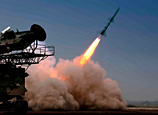
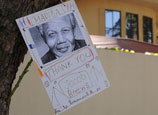

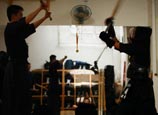
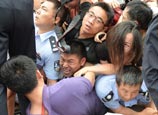
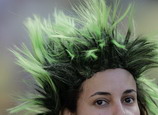
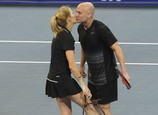








 Mom makes target weight to donate kidney to son
Mom makes target weight to donate kidney to son


![]()
